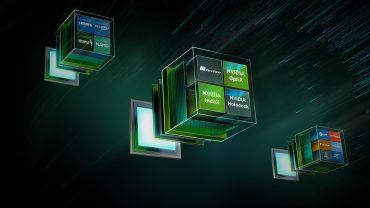
- Quantum & Chips
Nvidia to Supply Saudi AI Startup Humain with 18,000 Advanced Blackwell Chips
3 minute read

Saudi AI Firm Secures Priority Access to Next-Gen Blackwell Chips in Major Middle East Computing Push
Key Facts
- Nvidia partners with Saudi AI startup Humain, agreeing to supply 18,000 GB300 Blackwell chips initially, with hundreds of thousands more planned over 5 years
- The deal supports data centers totaling 500 megawatts in Saudi Arabia
- Nvidia’s stock rose 4% and AMD shares climbed over 5% following the announcement
Introduction
Nvidia’s landmark partnership with Saudi Arabian AI startup Humain marks a strategic shift in global AI chip distribution. According to Fortune, this collaboration positions Saudi Arabia as a premier destination for advanced AI technology, significantly impacting the global semiconductor landscape.
Key Developments
The partnership centers on Nvidia’s commitment to provide Humain with 18,000 GB300 Blackwell chips, their most sophisticated AI processors unveiled in March 2025. This initial phase launches a broader five-year plan involving hundreds of thousands of additional superchips, supporting massive data centers across Saudi Arabia with 500 megawatts of capacity.
The deal coincides with AMD’s $10 billion investment in the region and partnerships with major tech players including Amazon Web Services and Cisco, demonstrating Saudi Arabia’s growing influence in the global tech sector.
Market Impact
The announcement triggered immediate market responses, with Nvidia’s stock rising 4% and AMD gaining over 5%. Super Micro Computer, an AI server manufacturer allied with both companies, saw substantial stock appreciation following their Saudi agreements.
This strategic pivot helps offset potential losses from Chinese market restrictions, where Nvidia faces a possible $5.5 billion charge and AMD an $800 million impact due to export limitations.
Strategic Insights
Industry analyst Dan Ives characterizes the deal as a watershed moment for global AI development, providing the Middle East significant advantages over restricted markets like China. Jensen Huang, Nvidia CEO, emphasizes AI’s role as essential infrastructure, comparing it to electricity and internet utilities.
Expert Opinions and Data
Bank of America analysts highlight how these Middle Eastern partnerships help balance potential losses from Chinese market restrictions. The collaboration strengthens Saudi Arabia’s position in advanced technology while supporting Nvidia’s market expansion strategy.
Wedbush analysts project this deal as a catalyst for future AI collaborations in the Middle East, potentially involving other major tech companies like Palantir and Tesla.
Conclusion
The Nvidia-Humain partnership represents a significant shift in global AI chip distribution, strengthening Saudi Arabia’s technological capabilities while helping Nvidia diversify its market presence. This collaboration advances Saudi Arabia’s economic diversification goals while establishing new patterns in international technology partnerships.








